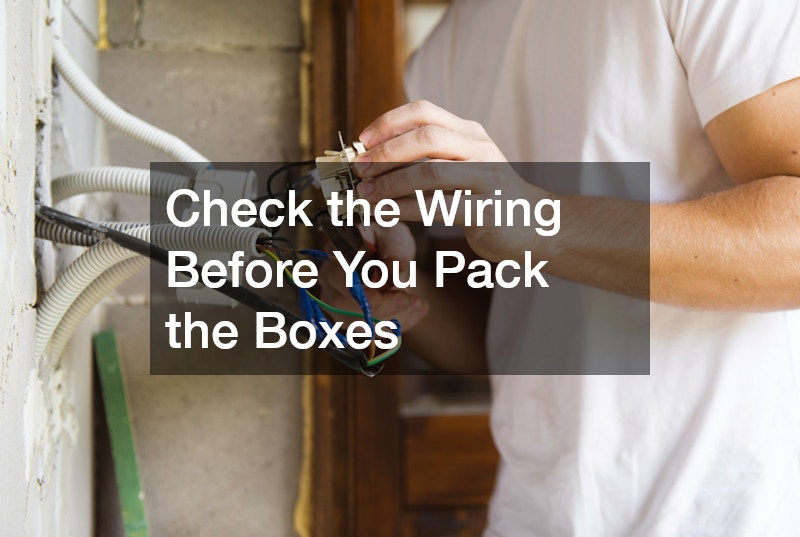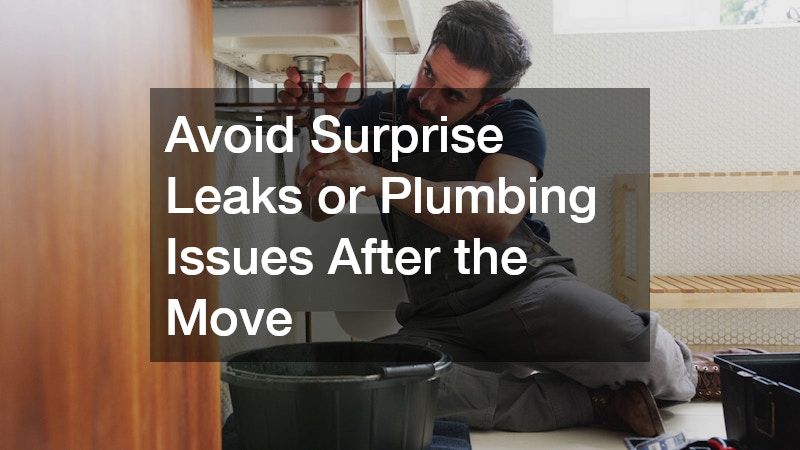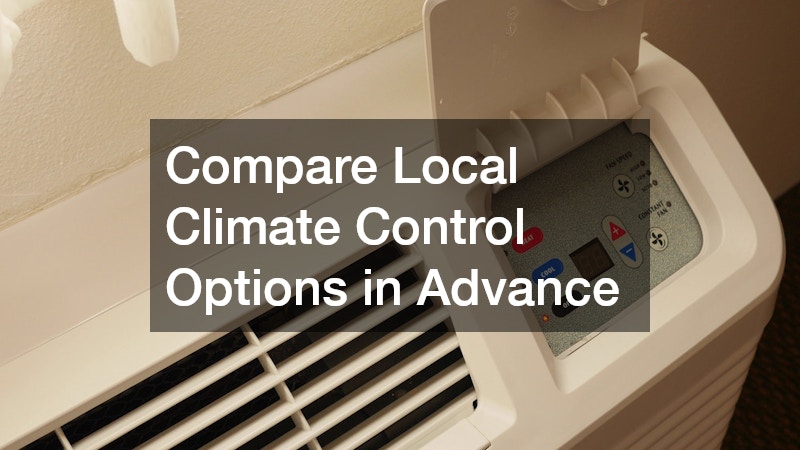

Moving out of your current home can be an exciting but complex process. Whether you’re relocating across town or making a cross-country move, there’s a lot more to consider than just packing boxes and scheduling a moving truck. It’s a time of transition, not just physically but emotionally as well. Families, in particular, need to balance logistical planning with personal readiness. Young children may need extra support during the move, and adults often face stress related to finances, job changes, and the unknowns of a new environment.
What makes the process smoother is not just thinking about where you’re going but what you need to resolve before you leave. That means assessing the condition of your home, arranging necessary maintenance, and preparing your family for what’s to come. Often, the focus is on the excitement of a new house, neighborhood, or school district, but skipping over critical details can lead to unexpected expenses or disruptions.
Every room, appliance, and service in your current home needs to be evaluated to ensure you’re not leaving any loose ends behind. This is also the time to prioritize your family’s health and comfort—making appointments, closing out service accounts, and thinking about what you’ll need immediately upon arrival at your new place. A move is an opportunity to start fresh, but it’s also a chance to take stock of what matters most.
By preparing thoroughly and staying organized, you can reduce last-minute stress and feel more confident in your decision. From utilities to medical needs, and from child activities to essential repairs, thinking through each category carefully is key. That’s why identifying the essential things to know before moving out is more than just a checklist—it’s a strategic process that sets you and your family up for long-term success in your next home.
Check the Wiring Before You Pack the Boxes

Before you get too far into packing and organizing, it’s smart to have your home’s electrical system checked. Faulty wiring or outdated panels can create hazards for the next homeowner—and if you’re renting, these are issues you’ll want to address to get your full deposit back. Electrical issues are often hidden behind walls, so an inspection by experienced local residential electricians is invaluable.
You may also discover small projects worth tackling now, like replacing old outlets or installing energy-efficient fixtures. Fixing electrical issues beforehand avoids delays in your closing process and ensures peace of mind as you prepare to hand over the keys. Among the essential things to know before moving out, ensuring your electrical systems are in top shape can save both time and money.
In some cases, insurance policies may even require proof of recent electrical evaluations. Upgrading your home’s system before selling can increase its marketability and reduce your liability. If you’re moving into a new home, knowing the electrical situation in both places ensures a smoother transition. Whether you’re upsizing or downsizing, don’t overlook this detail—it’s not just about safety, but convenience and future-proofing.
Make Sure the Temperature Will Always Be Comfortable
No one wants to move into a home with unpredictable heating or cooling. Before you move, have your current HVAC system inspected and serviced. If you’re selling, this makes your home more attractive to buyers. If you’re renting, it can help you avoid disputes. Reliable HVAC repair ensures your systems are running efficiently and safely, especially during seasonal transitions.
Additionally, getting a full report of your HVAC system’s condition can be helpful documentation during the sale or rental turnover process. Of all the things to know before moving out, this one has a direct impact on comfort for whoever comes next.
HVAC repair professionals can also catch inefficiencies that are costing you on your utility bill. Whether it’s a clogged filter or an outdated thermostat, small fixes now can lead to smoother operation and better indoor air quality. Plus, it gives the new occupants confidence that the system won’t fail shortly after move-in. Don’t forget to leave the new residents a copy of your last maintenance report—it’s a professional and helpful touch.
Plan Ahead for Your Children’s Social and Educational Needs
Relocating can be hard on young children, who often rely on routines and familiar environments. As part of your moving prep, research activities for young children in your new area. From daycare centers to community events and learning programs, having these lined up can help smooth your child’s adjustment.
Parents may also consider continuity in educational approaches. If your child is used to Montessori or play-based learning, look for similar options near your new home. When thinking through the most critical things to know before moving out, factoring in your child’s growth and happiness should be high on the list.
Don’t wait until after the move to explore what’s available. Visit local parks, libraries, or afterschool programs ahead of time. Reach out to parent groups online and ask for recommendations. Children thrive on familiarity and structure, so the sooner you start building new routines, the easier the move becomes for everyone involved. A thoughtful plan for your kids can turn a stressful change into an exciting new adventure.
Avoid Surprise Leaks or Plumbing Issues After the Move

Even minor plumbing issues can cause major headaches if left unchecked. Before you move out, schedule a thorough inspection of your system. Qualified plumbing services can identify leaks, clogs, or aging components that may not be immediately visible.
Addressing these concerns before handing over your keys protects your home’s value and ensures a smooth transition for the next occupants. It also prevents the possibility of being contacted later for damage claims or withheld deposits. This is one of those hidden yet crucial things to know before moving out.
Fixing plumbing issues early also saves money—minor drips can turn into costly damage over time. Have your water heater, toilets, sinks, and drains inspected. If you’re selling, these upgrades are a selling point. If you’re renting, documentation from licensed plumbing services can help protect your security deposit. No one wants to deal with emergency plumbing calls on their moving day, so address concerns while the house is still under your care.
Know How Your New Home Handles Fuel and Heating
If your new home uses propane, it’s worth understanding how that system works before you arrive. Knowing who provides propane gas tanks in the area, how refills are managed, and what safety protocols exist will save you time.
Make sure to close out or transfer your current propane account if applicable. Getting familiar with these systems ahead of time helps avoid service lapses. Understanding fuel sources may not seem urgent now, but it’s one of those long-term comfort issues that qualifies as one of the top things to know before moving out.
You’ll also want to ask your propane provider if there are seasonal pricing differences or auto-refill options. Familiarizing yourself with the tank’s age and inspection history is helpful if you’re buying. Whether you’re moving in winter or summer, ensuring your heating is reliable should be a priority. A few quick calls and an inspection can ensure your first week in the new home is cozy, not chaotic.
Confirm the Roof Is in Good Shape Before You Commit
Your roof protects everything inside your home, yet it’s often overlooked in moving prep. Hire a professional to inspect for wear, leaks, or damage. Whether you’re selling or ending a lease, roofing services can provide the documentation and repairs necessary to ensure the next resident is covered.
A solid roof can also improve property value and make a listing more attractive. It’s one of the smarter things to know before moving out because it helps prevent last-minute negotiations or unexpected costs.
Roofing services can also identify ventilation problems or insulation gaps that affect energy efficiency. Don’t forget to check gutter systems and flashing, especially if you’re in a region with heavy rain or snow. Providing a clean bill of health for your roof gives buyers or landlords confidence. And if your new home needs roof work, knowing what to expect from roofing services ahead of time can save stress and expense down the line.
Compare Local Climate Control Options in Advance

Every region has different climate control needs. In some areas, summers are long and hot; in others, winters are bitter. Either way, you want to know what kind of systems are available in your new location. That means checking out HVAC companies and comparing their services, pricing, and customer reviews.
Before you move out, take the time to finalize any service contracts you may currently have and gather maintenance records. The effort ensures you’re not leaving unfinished business behind, which is one of the responsible things to know before moving out.
Call a few local HVAC companies to ask what brands they specialize in and whether they offer emergency service. This knowledge is particularly useful if you’re moving somewhere with climate extremes. Getting on a maintenance schedule early also avoids costly breakdowns. And for your current home, knowing your system is serviced and documented can prevent future disputes or deductions from sale proceeds.
Schedule Health Checkups Before You Relocate
Healthcare continuity is a common concern during a move. Before leaving your current area, it’s smart to schedule appointments with your dentist and other medical providers. This ensures you don’t miss essential care during the transition.
Ask your dentist for copies of dental records and referrals if possible. Getting all your documents in order is just another of the essential things to know before moving out—helping your family maintain consistent health routines.
Also consider scheduling a final cleaning, checkup, or procedure you’ve been putting off. Moving often involves insurance changes, so use your current coverage while it’s active. Look up dentists in your new area to avoid gaps in preventive care. If you have children, making dental health part of your move plan keeps their routines stable. Taking care of these details early leaves one less thing to worry about in your new environment.
Ensure You’ll Have Reliable Tech Support at Your New Address
Modern families rely on technology for work, school, entertainment, and more. If you’re moving to a new town or state, make sure IT support is available and reliable. Researching an IT service provider in your future location can save time later.
Disconnecting and reconnecting your current services also requires planning. This step might feel technical, but it’s one of the digital age’s vital things to know before moving out.
Make a checklist of all your tech needs—from home Wi-Fi setup to device troubleshooting. Ask your current IT service provider if they operate in your new region or can recommend someone who does. If you’re moving with smart home devices, you may need reconfiguration help. Secure, seamless tech service means you can settle in without delays, missed work, or dropped Zoom calls.
Think About Everyday Comfort and Sustainability

Simple comforts matter more than you might think. Cotton based products like breathable bedding, absorbent towels, and soft clothing can make a new home feel welcoming from day one. It’s also a good time to invest in sustainable, high-quality home goods.
These comfortable touches help make a strange space feel familiar. While not often mentioned, they definitely belong on the list of thoughtful things to know before moving out.
Moving doesn’t have to be chaotic or overwhelming. With the right preparation, it can be an opportunity to realign your priorities and enter a new chapter of life with confidence. The best way to make this transition successful is by addressing the most practical and personal aspects of your current and future home.
When you take the time to research service providers—like electricians, HVAC specialists, and plumbers—you’re not just being thorough; you’re protecting your investment. Coordinating healthcare, planning for your children, and handling utility transitions are equally important. Each of these areas represents key things to know before moving that can make or break your moving experience.
A well-executed move considers both the small details and the bigger picture. It’s not just about what you’re leaving behind, but how prepared you are to start fresh. Whether it’s remembering to schedule a dental visit, picking up some new cotton linens, or choosing a reliable IT provider, every thoughtful step counts.
And while no move is completely stress-free, having a clear checklist and a proactive mindset significantly improves the journey. Think beyond the moving truck—consider the full ecosystem of your family’s life and how it translates to a new environment.
Ultimately, knowing the most important things to know before moving isn’t just useful—it’s empowering. With these considerations in mind, you’ll be better equipped to step into your next home with confidence, stability, and peace of mind.